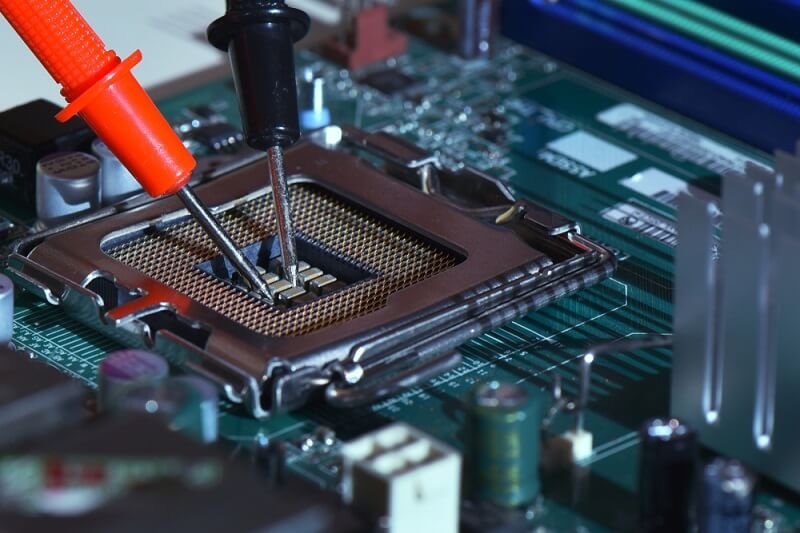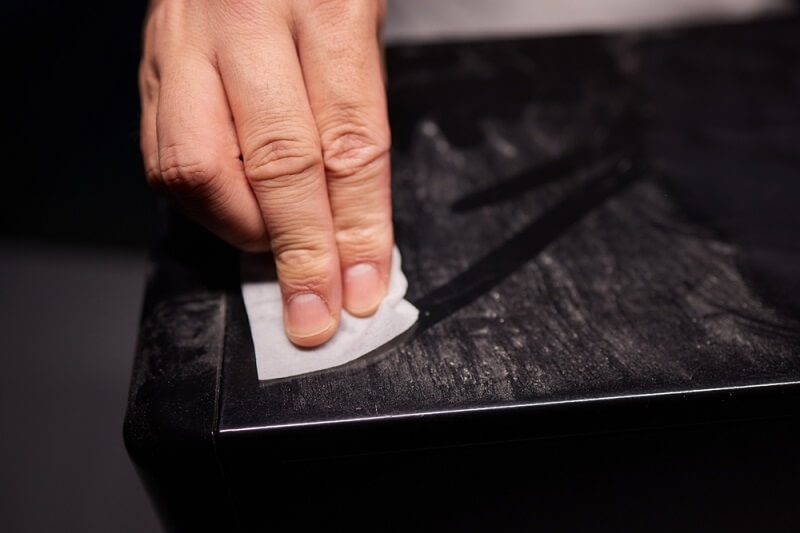
Similar to any machine, a computer requires regular care and maintenance. Injuring small checks can easily lead to significant challenges down the road. That is where PC maintenance tips can help. Small maintenance habits, such as dusting and optimizing the system, can help keep this machine running cool and efficiently. Even a brief routine can help prevent crashes, the noise of a struggling machine, or slow performance.
Here is the idea—your computer works hard every day. Devote a few minutes to maintenance, and you'll significantly boost performance and save some money.

Dust might look harmless, but it’s a computer’s worst enemy. It sneaks into every gap, clogs fans, and blocks airflow. Too much dust can cause the system to overheat and slow down. Regular dust cleaning is one of the easiest maintenance tips for your PC. Unplug the power source, open the case gently, and use a soft brush or compressed air to clean the interior. Avoid using a vacuum—it can create static and damage parts.
Pay attention to these areas during cleaning:
Keeping the inside clean helps maintain low heat and protects parts. What this really means is smoother performance without random shutdowns.
No fancy software is needed to keep a PC running right. Regular system optimization can resolve slow startups and lag.
A few tricks that help a lot include
Optimization is not about adding more—it’s about cleaning what’s not needed. Each minor fix adds up to a noticeable performance boost over time.
A computer consists of many small parts that work together. Taking care of them ensures nothing breaks early. That’s why component care is one of the most vital PC maintenance tips you can follow.
Here’s a list to keep everything in shape:
Sometimes, small attention prevents big headaches. What this really means is avoiding unexpected system failures when you need your PC most.
Heat is the most significant performance killer, and a hot system is not only slower but can also damage components. Checking the cooling should be on your list of regular checks, as explained here.
It is essential to regularly clean your fans and ensure that air can flow freely through the cooling vents. Also, check for any tubes on liquid cooling systems and ensure the cooling system has sufficient coolant; refill as necessary. Apply thermal paste to CPUs on a yearly or every-other-year basis for improved cooling performance.
These measures will not only keep your PC cooler but also noticeably enhance its cooling performance without costing you anything.
Even well-maintained computers can occasionally malfunction. That’s where smart troubleshooting helps find the cause fast. Before calling a technician, check a few simple things first.
If the problem persists, unplug any extra devices and test the parts one by one. Here’s the thing—good troubleshooting saves both time and panic.
Every computer contains important documents, photos, and data. Before cleaning or upgrading your computer, always back up any data you want to protect. This is a step that many users often disregard, but it can help avoid a lot of stress and disappointment. Consider storing the documents on an external hard drive or copying them to a cloud service.
That way, even if something goes wrong during system optimization, your files stay safe. Keeping regular backups also helps when doing troubleshooting or reinstalling software. Data safety should always be the top priority in any maintenance checklist.
Not all care is physical. Your software also needs regular maintenance to keep things running smoothly. Update applications regularly to ensure bugs are fixed. Remove outdated software that no longer works properly.
Clean browsers and delete old extensions that slow browsing. A minor digital cleanup enhances system stability and provides a slight performance boost.
Monitors, keyboards, and mice are often overlooked during maintenance. However, they’re just as crucial for comfort and longevity.
Wipe screens gently using microfiber cloths. Clean under keys using air blowers or small brushes. Could you check for cable bends that can lead to broken connections?
Taking care of external gear is part of proper component care, and it keeps the full setup fresh and ready.
Having a computer that takes a long time to boot is so inconvenient. Fortunately, optimizing your system shouldn't be hard. Could you check your startup settings and turn off the programs that won't be used daily? The fewer programs that are set to start up, the less delay there will be, and the quicker the boot time will be.
That minor tweak often delivers a visible performance boost right away. It’s one of the best PC maintenance tips anyone can do in minutes.
Good care only works if it’s done often. Create a monthly checklist for cleaning, updates, and troubleshooting. Write reminders or use phone alerts to stay consistent. Regular schedules prevent the most common problems before they grow.
The computer stays quiet, fast, and reliable for years. Skipping even simple steps, such as dust cleaning or component care, can slowly wear down the system. Consistency makes all the difference.
Sometimes a computer gives warning signs before things go wrong. Learning to spot them early can help fix issues quickly.
Look for these clues:
These are red flags that your PC needs some love. Following regular PC maintenance tips keeps those issues rare.
Power surges or unstable electricity can instantly harm components. A good surge protector or UPS (uninterruptible power supply) adds safety.
Use stable outlets and unplug during storms. Even simple care like that keeps parts safe and working longer. It’s a crucial aspect of competent component care that people often overlook.
When a computer runs clean, it works faster, lasts longer, and feels new again. These PC maintenance tips aren’t just chores—they’re small habits that make a big difference.
Dust cleaning, system optimization, and troubleshooting keep every part happy. It’s not about being a tech expert—it’s about giving attention where it counts.
When a machine is maintained correctly, it tends to run better, last longer, and be overall less stressful. By making a few simple, habitual changes, such as consistently cleaning dust and optimizing your system, you can achieve significant performance improvements from your machine.
Caring for basic peripherals while taking simple troubleshooting steps can help you address more common issues. You can take this approach today, with one of your tips, and notice the difference in your life while you are using a machine. Your personal computer will thank you!
This content was created by AI